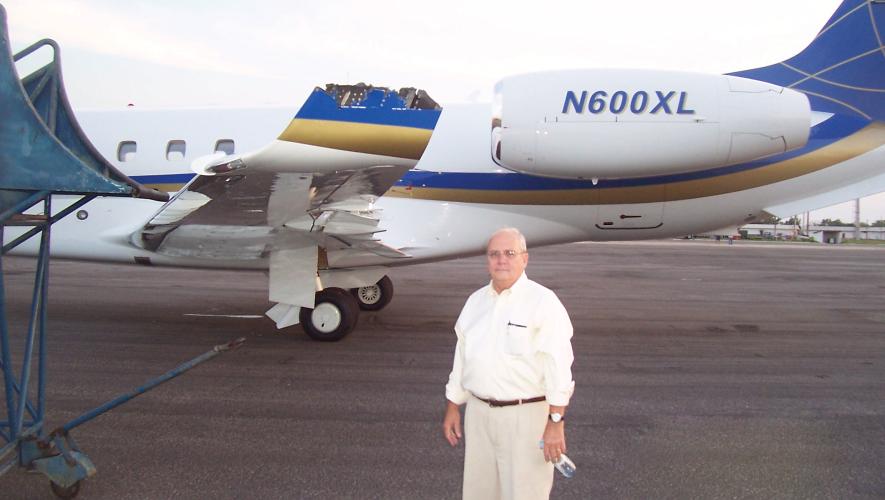The International Business Aviation Council (IBAC) is here at LABACE once again to continue to inform South American aircraft operators about the voluntary International Standards for Business Aircraft Operations (IS-BAO) program that it established just over 11 years ago in response to shifting regulatory demands on the sector.
Recently, IBAC announced that the audit-based program–which is a set of professional industry practices recognized by major regulatory authorities and ICAO–had enrolled its 700th member. Most of those are private business aircraft operators, but the membership also includes air charter operators and/or aircraft management providers as well. IS-BAO currently has registrants in 37 countries around the world.
“Regardless of location, private business and aviation charter operators benefit from IS-BAO because of its well-integrated system of standards that promote safety, efficiency and effectiveness,” said John Sheehan, IBAC’s audit manager. “IS-BAO uses a high-quality safety management system as the central integration mechanism to help operators manage their operational risk to a level as low as reasonably practicable, no matter their size or type of operation. A beneficial advantage of the program assures operators that they meet all ICAO standards for private operators of large and/or turbojet aircraft.”
IS-BAO has been described as the establishment of a true participatory nonpunitive safety culture within an operation, and its aims are to foster a voluntary practices protocol for the business aviation world through the adoption of safety management systems (SMS), a crew fatigue countermeasures program, formalized organizational and personnel training and the creation and use of operational manuals and emergency response plans. This is important since analyses of business aviation accidents show that between 20 and 30 percent of them could be avoided by adherence to IS-BAO practices.
Currently, aside from in Brazil, IS-BAO has not generated a lot of strong interest in South America, according to program officials. Despite some inquiries from companies in countries such as Colombia, Chile, Argentina and Brazil–which is home to many private aircraft–remains the program’s stronghold on the continent, with 12 certified operators currently listed. “I would say it’s quite good for both business/corporate aviation types and charter types. I’d say at least half of those 12 operators have operating certificates, and these are some of the biggest operators,” said Sheehan. Among them is Líder, one of the country’s major aviation services providers, which operates a string of FBOs as well as a larger aircraft charter/management business.
IBAC (Stand 3020), which represents 14 national and regional business aviation associations, has been a regular presence at the show since its inception, and the organization again is explaining its advocacy role and the services it provides. “LABACE is an important event for us since it is our principal showcase in South America for both IBAC and IS-BAO,” Sheehan told AIN. “Additionally we are supporting one of our long-time affiliates, Associaçao Brasileira de Aviáçáo Geral (ABAG).”
Here at the show, IBAC is conducting two full-day workshops: Fundamentals of IS-BAO (Thursday and Friday, Santos Dumont Auditorium 2), which describes the workings of the program, including its goals and how private aircraft operators can achieve the various levels of certification within. While there currently are eight accredited IS-BAO auditors in Brazil, the second workshop–IS-BAO Auditor Accreditation Workshop–is aimed at training prescreened, pre-qualified individuals seeking to become auditors within the program.
“Our workshops at LABACE have always been well attended since these are the only ones conducted annually in South America,” said Sheehan. LABACE is the first business aviation convention where the IS-BAO workshops have been completely integrated into the event rather than taking place before or after it.







